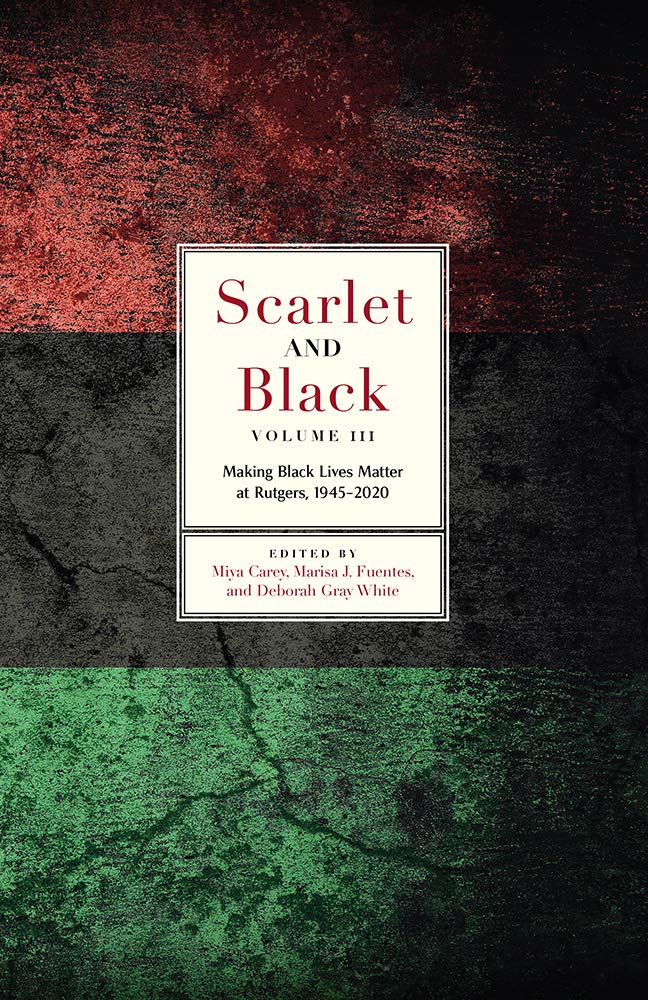Message from Chancellor Christopher J. Molloy:
April 29, 2021
Dear Members of the Rutgers–New Brunswick Community:
Rutgers launched the Scarlet and Black Project several years ago as an effort to confront the ways our university benefited from and contributed to slavery and its legacies of racism against African Americans, and the displacement of Indigenous Americans from their land.
The project began with the 2016 publication of Scarlet and Black Volume 1: Slavery and Dispossession in Rutgers History, a book that traces how Rutgers benefited from the slave economy and came to own the land it inhabits.
Last year, that work continued with the publication of Scarlet and Black Volume 2: Constructing Race and Gender at Rutgers, 1865-1945, which provides new context for the lives of Rutgers’ first African American students. It highlights how Paul Robeson, Julia Baxter Bates, and others struggled due to a culture of racism.
Next month, Rutgers University Press will publish the final book in the trilogy, Scarlet and Black Volume 3: Making Black Lives Matter at Rutgers, 1945-2020. This latest book covers a broad sweep of history, including what historians have called the “Black revolution on campus” – protests at Rutgers and other universities during the 1960s and 70s that pushed American higher education to better reflect and honor our nation’s diversity.
The third volume highlights activism by Black, Latinx, and other students at Rutgers’ Camden, New Brunswick, and Newark campuses, and how they succeeded in challenging Rutgers to become the exemplar of diversity, equity, and inclusion that President Obama celebrated during his 2016 commencement speech and that we continue to improve upon today.
Each book in the series was researched and written by Rutgers doctoral candidates, postdoctoral fellows, and undergraduate students, led by Deborah Gray White, Board of Governors Distinguished Professor of History, and Marisa Fuentes, Presidential Term Chair in African American History and an associate professor of history and gender studies, and their co-editors. Please join me in thanking and congratulating them for this groundbreaking work that has challenged us to confront our past, and has literally changed our university’s landscape. It has become a model for universities that study their relationship to slavery, to African Americans, and to other unrepresented identities.
Finally, I would also like to thank our students for pushing Rutgers to improve by illuminating our blind spots; and thank the dedicated faculty, administrators, and staff who have worked tirelessly to support this effort, pushing us forward on the path to becoming a beloved community.
The Scarlet and Black Committee will hold a virtual symposium today, April 29 and tomorrow, April 30 to discuss the final two books in the series, as well as the project’s future. We hope you will attend to learn more about this important effort.
Sincerely,
Christopher J. Molloy, Ph.D.
Chancellor, Rutgers University–New Brunswick

